News
-
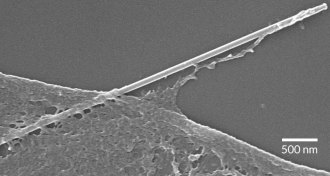 Tech
TechCells snack on nanowires
Human cells eat silicon nanowires in a process called phagocytosis. Nanowire-infused cells could be a step towards biological electronic devices.
By Meghan Rosen -
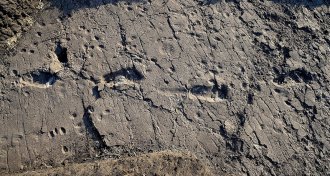 Anthropology
AnthropologyNew footprint finds suggest range of body sizes for Lucy’s species
Tracks discovered in Tanzania appear to have belonged to the tallest known Australopithecus afarensis individual, but stature estimates can be tricky.
By Bruce Bower -
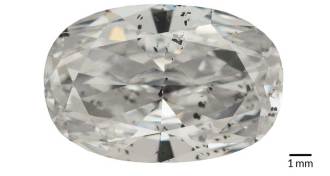 Earth
EarthMegadiamonds point to metal in mantle
Imperfections in supersized diamonds hint at metallic iron and nickel in Earth’s mantle.
-
 Planetary Science
Planetary ScienceDawn spacecraft maps water beneath the surface of Ceres
Water ice sits just beneath the surface and within some permanently shadowed craters of the dwarf planet Ceres.
-
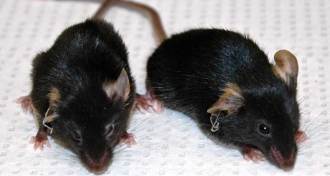 Genetics
GeneticsProteins that reprogram cells can turn back mice’s aging clock
Proteins that reprogram adult cells to an embryonic-like state can rejuvenate prematurely aging mice.
-
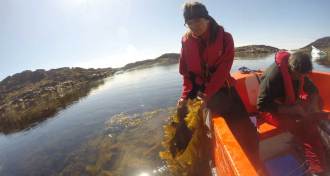 Climate
ClimateArctic kelp forests may create summer refuges from ocean acidification
Long summer daylight revs up carbon capture in Arctic kelp forests, offering a little relief from acidifying ocean water.
By Susan Milius -
 Earth
EarthEarth’s mantle is cooling faster than expected
The thinning of newly formed oceanic crust suggests that Earth’s mantle is cooling much faster than previously thought.
-
 Ecosystems
EcosystemsOyster deaths linked to ‘atmospheric rivers’
Atmospheric rivers bring strong storms that could have been behind a 2011 California oyster die-off.
-
 Health & Medicine
Health & MedicineNumber of teens who report doing drugs falls in 2016
Drug use is down among teens, survey finds.
-
 Earth
EarthFossil microbes show how some life bounced back after dino-killing impact
Pioneering microbes colonized the waters above the Chicxulub crater within hundreds of years following the impact, new research shows.
-
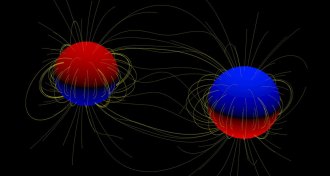 Astronomy
AstronomyMagnetic stars could have created LIGO’s massive black holes
Strong magnetic fields could provide a way for massive stars to create heavy black holes when they die.
-
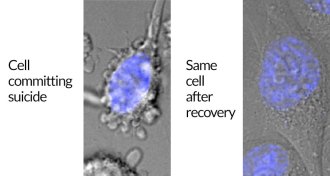 Life
LifeCells avoiding suicide may play role in spread of cancer
A newly discovered process can pull cells back from the brink of death.